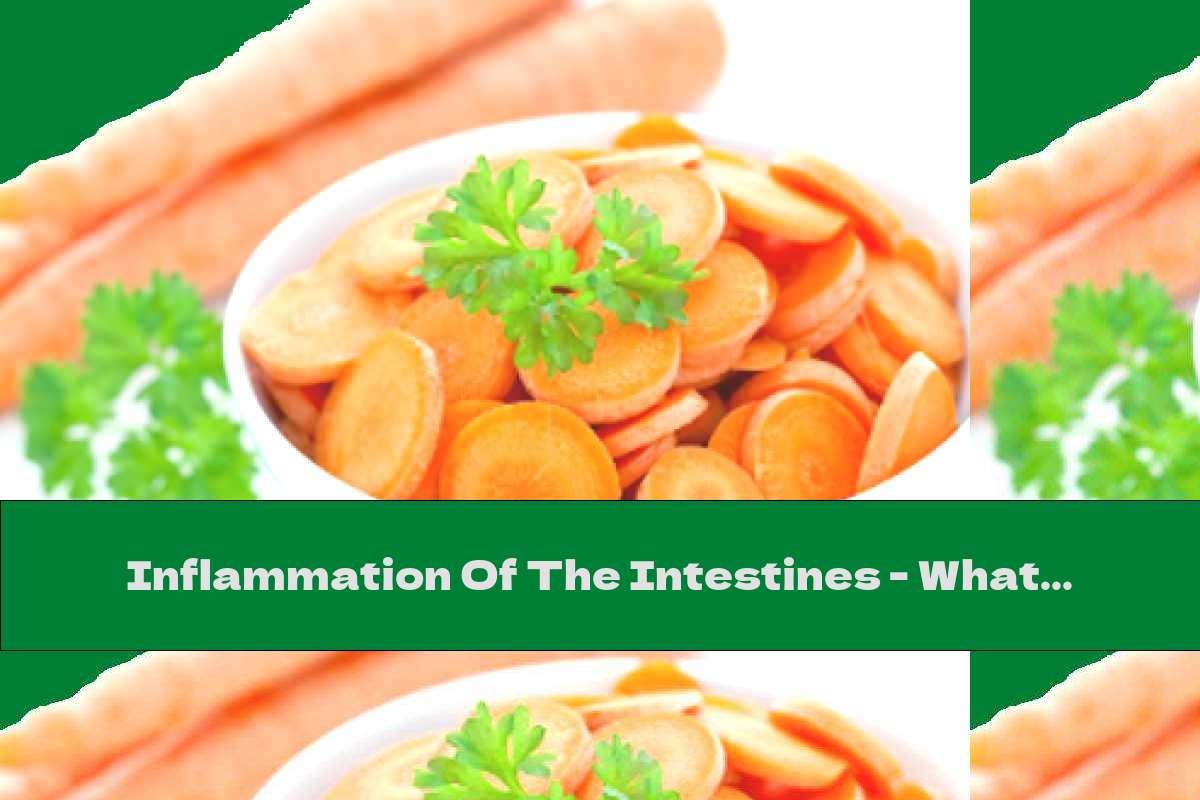Inflammation Of The Intestines - What Is The Appropriate Diet?
 Author: Alexander Bruni
Time for reading: ~2
minutes
Last Updated:
August 08, 2022
Author: Alexander Bruni
Time for reading: ~2
minutes
Last Updated:
August 08, 2022

Consumption of foods rich in fiber can worsen the condition of inflammatory bowel disease.
The causes leading to inflammatory processes of the intestinal mucosa include various diseases ( Crohn's disease, chronic ulcerative colitis) , as well as errors in diet, antibiotics and others. Often the patient associates the consumption of a specific type of food with the onset of symptoms, ie there are so-called trigger foods that trigger inflammatory reactions of the intestinal mucosa.
The most common symptoms are a feeling of discomfort in the affected area of the intestine, pain, swelling and increased flatulence . In addition, there are changes in the frequency of bowel movements, as well as the presence of pathological impurities (mucus, blood). Periods of diarrhea may alternate with periods of constipation. In severe forms of inflammation it is possible to affect the general condition - fatigue, fever, fatigue, loss of appetite and others.
In Crohn's disease, it is possible to affect different areas along the entire length of the digestive tract (from the oral cavity to the anus). In contrast, in chronic ulcerative colitis, the inflammation is localized mainly on the colon.
As a result of inflammation, the intestinal mucosa begins to function poorly , as its properties of decomposition and resorption of nutrients are impaired. Some of the unabsorbed substances cause an accelerated passage of intestinal contents and result in diarrhea. An example of this is fats, which is why it is recommended to reduce the intake of saturated fatty acids, while increasing the intake of omega-3 fatty acids, which have a proven anti-inflammatory effect.
Experts recommend keeping notebooks in which patients describe the foods they eat. Against each food is noted how their symptoms are affected - whether the condition improves or worsens with the consumption of the product. In this way the menu of each individual patient is individualized.
The presence of foods rich in fiber is one of the main recommendations for maintaining a balanced and healthy diet. In contrast to this rule, in the presence of inflammatory processes in the intestine requires a strong reduction of ballast substances . The reason is that they irritate the damaged mucosa, which leads to further potentiation of the inflammatory process.
Foods that are high in fiber are: whole grain pasta, most legumes (beans, lentils, beans), bran, oats, broccoli, cauliflower, cabbage and others. Most citrus fruits are also considered in the presence of inflammatory processes in the intestinal mucosa.
Consumption of potatoes, carrots, white rice is recommended. In addition, adequate protein intake with food is important. Lean meats are mainly chosen - chicken (without skin), turkey, rabbit and beef.
Milk consumption in some patients is discontinued due to the development of lactose intolerance . It is due to the lack of an enzyme that breaks down milk sugar (lactose). The reason is that due to inflammatory processes, the cells involved in the synthesis and secretion of this enzyme are destroyed.
Raw fruits and vegetables can also irritate the intestinal mucosa due to the presence of fiber. During heat treatment, some of them are destroyed, which is why it is recommended that patients consume them boiled or baked . Fried foods are excluded or at least their consumption is greatly reduced.
Caffeine can increase bowel motility and increase the frequency of diarrhea. For this reason, coffee and other beverages containing caffeine are excluded. Consumption of carbonated beverages, in turn, may increase the formation of gas, which leads to additional discomfort.
It is important to eat often ( 5-6 times ) during the day , in small portions. This ensures better digestion and subsequent absorption of nutrients. 3836
Related Articles
Top Nutrition Articles Today
- . The Latest Food Pyramid: A Guide to Balanced Nutrition
- . Nutrition Guide: Importance of Food Pyramid, Meal Planning,...
- . The Role of Hydrochloric Acid in Digestion: A Comprehensive...
- . All You Need to Know About E471 in Food: Functions, Foods, H...
- . The Power of Chalk in Nutrition: Benefits, Recipes, and Tips
- . The Essential Macronutrients of Beans: Protein, Carbs, Fiber...
- . List of Foods that Contain Carrageenan: A Guide to Avoiding...
- . Hydrochloric Acid in Digestion: Importance, Symptoms, and Na...
- . Ascorbyl Palmitate: Benefits, Uses, and Precautions
- . The Nutritional Benefits of Quail: A Protein-Rich Superfood